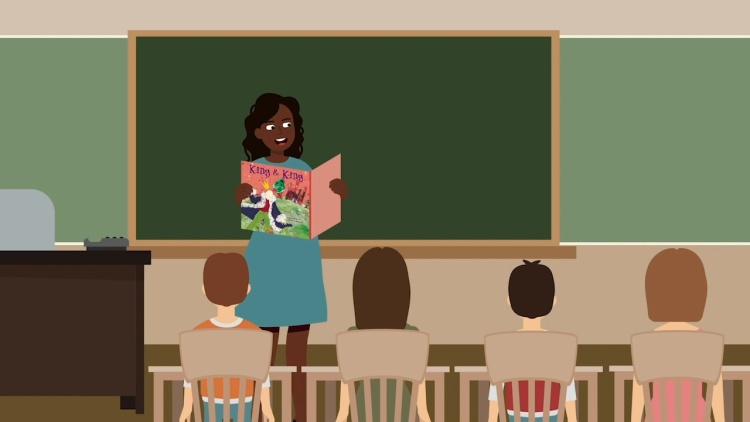Parker v. Hurley
United States Court of Appeals for the First Circuit
514 F.3d 87 (2008)

- Written by Josh Lee, JD
Facts
The Lexington, Massachusetts school district (the district) sent home a set of books for kindergarten and first-grade students. One book showed different families, including single-parent families, an extended family, interracial families, a family with two moms, and a family with two dads. Another book described a girl who was made to feel embarrassed by a classmate for having two moms. The girl then learns that families can come in many different varieties. Additionally, a second-grade class read a picture book that included a wedding scene with two princes and showed a picture of the two princes kissing. David and Tonia Parkers’ (plaintiffs) son attended kindergarten and first grade in the district. The Parkers objected to the district exposing their son to homosexuality and gay marriage. The Parkers were Judeo-Christians and claimed that a core belief of their religion was that homosexual behavior and gay marriage were immoral and violated God’s law. The Parkers requested the right to opt their son out of receiving any materials depicting homosexuality or gay marriage. The district rejected the request. The Wirthlins’ (plaintiffs) son was in the second-grade class in which King and King was read. The Wirthlins also asserted that their religious beliefs considered homosexuality and gay marriage immoral. The Wirthlins requested that their son be exempted from any discussions of homosexuality or gay marriage. The district also rejected that request. The plaintiffs sued the district, alleging that the district was infringing on the free exercise of their religion in violation of the First Amendment by indoctrinating their children to believe that homosexuality and gay marriage were acceptable. The district court dismissed the claims, and the plaintiffs appealed to the United States Court of Appeals for the First Circuit.
Rule of Law
Issue
Holding and Reasoning (Lynch, J.)
What to do next…
Here's why 911,000 law students have relied on our case briefs:
- Written by law professors and practitioners, not other law students. 47,100 briefs, keyed to 997 casebooks. Top-notch customer support.
- The right amount of information, includes the facts, issues, rule of law, holding and reasoning, and any concurrences and dissents.
- Access in your classes, works on your mobile and tablet. Massive library of related video lessons and high quality multiple-choice questions.
- Easy to use, uniform format for every case brief. Written in plain English, not in legalese. Our briefs summarize and simplify; they don’t just repeat the court’s language.





